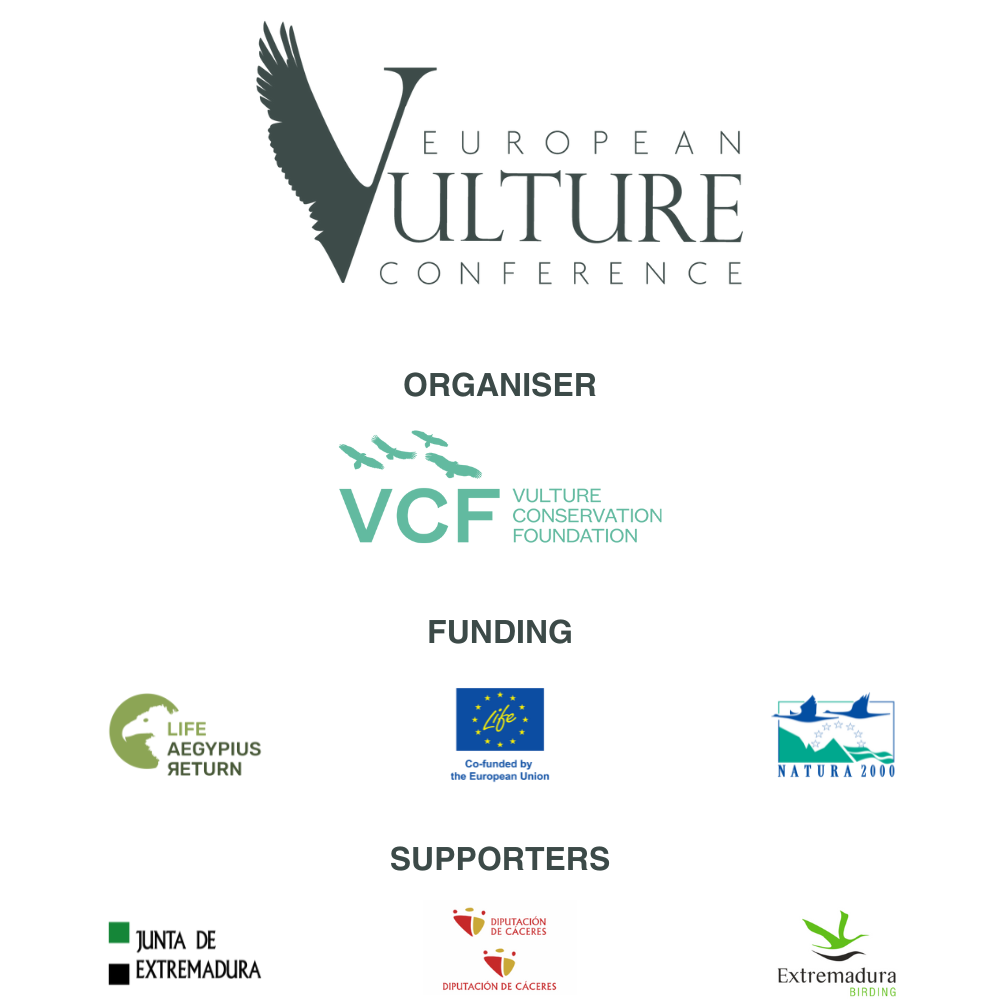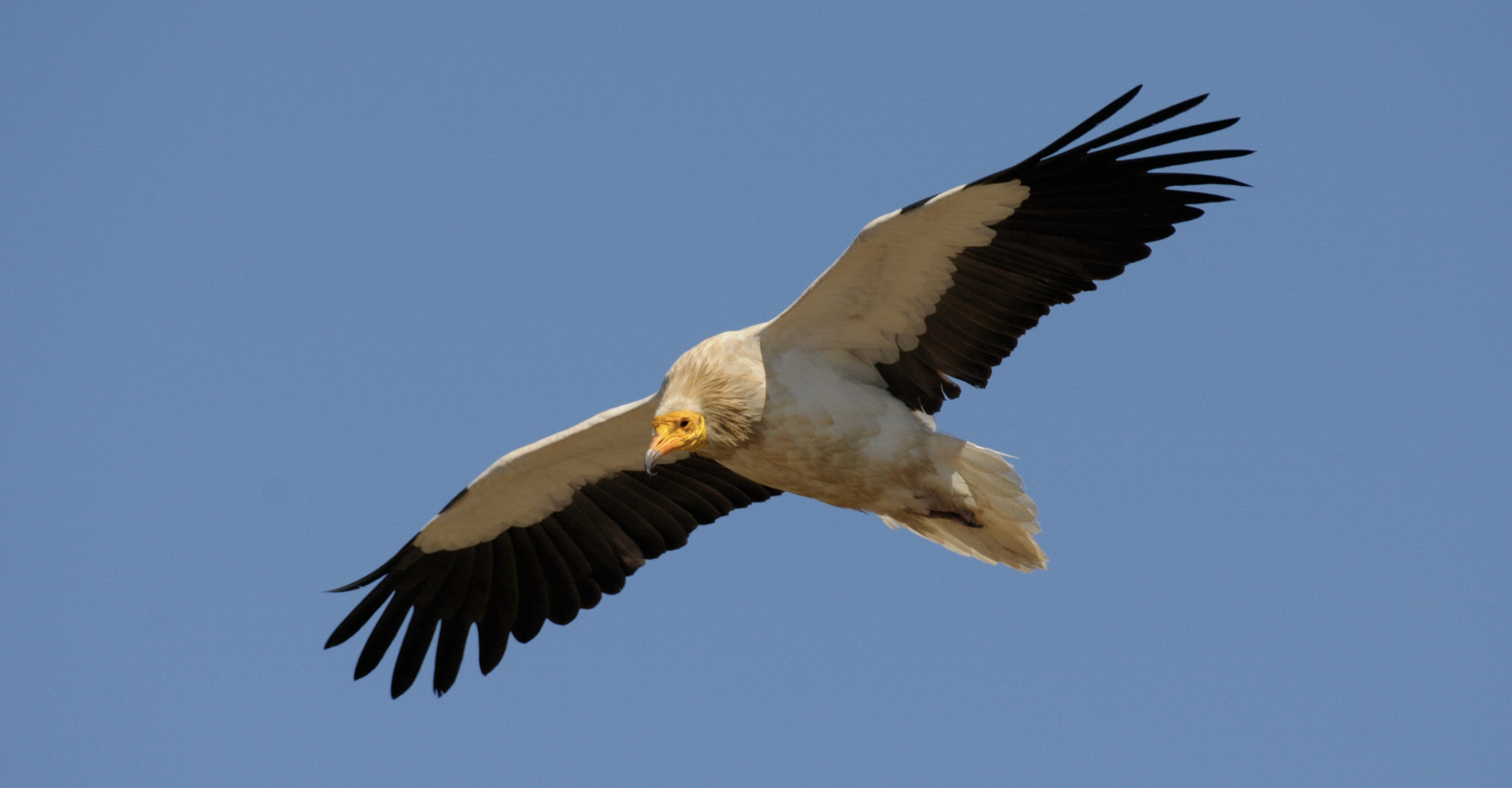Dr. Pascual López López, an Associate Professor of Ecology at the University of Valencia and a prominent conservationist in Spain, will be one of the Keynote Speakers at the European Vulture Conference 2023. His talk, “Conservation challenges and opportunities for migratory vultures: a movement ecology perspective,” will share his latest research findings on vultures from three different collaborative studies.

Understanding vulture movements
The study of movement ecology is vital in wildlife conservation. It offers important information about behaviour, habitat use, and migration patterns. This knowledge is particularly significant for vultures. These scavengers play a major role in maintaining healthy ecosystems by cleaning up animal carcasses and reducing the spread of diseases. Vultures also act as indicators of ecosystem health – their presence or absence can tell us a lot. By studying how vultures move, researchers can find ways to protect their habitats, mitigate threats to their populations, and promote the conservation of these important species and the ecosystem services they provide.
Resident and migratory behaviours in Egyptian Vultures
The first study focused on how Egyptian Vultures combine migratory and resident behaviours and how factors like the environment and social interactions affect their populations. It revealed that more young vultures tend to stay for the winter when there are more adult birds around. Those staying in one place have a better chance of staying alive but use more energy in the winter. On the other hand, migrating vultures save energy in the winter but have a more challenging time surviving and reproducing.

Tracking vulture movements and mortality causes
In another collaborative effort, researchers analysed tracking data from 220 migratory Egyptian Vultures, covering about 70% of where these birds live throughout the year. The study showed that survival rates drop during migration, but vultures have a better chance of staying alive during the non-breeding season in lower latitudes. Sadly, many vultures die due to human activities – about half of the known causes of death are because of people.
The largest wintering population of Egyptian Vultures in southwest Europe
In the third research effort, Dr. López-López will detail the movement ecology of the biggest wintering population of Egyptian Vultures in southwest Europe. This study employed field surveys and GPS tracking data collected from December to February across four consecutive winter seasons. The outcomes show that vultures prefer to stay near their roosting sites and lean towards relying on farms for food over other sources.
Coming together for vulture conservation
During his speech, he will stress the importance of collaboration among researchers, conservationists, and decision-makers to effectively protect vultures. Working together is key to their survival. This message holds special significance on a global scale, as migratory vultures cross borders in their quest for survival.

Background of Dr. Pascual López López
Dr. Pascual López López is an experienced wildlife biologist focusing on population ecology and animal behaviour. With a central focus on translating scientific knowledge into practical decision-making and effective wildlife management approaches, his research primarily centers around raptors as his chosen study models.
His expertise lies in studying birds of prey like vultures, using different methods such as fieldwork, tracking data analysis, and understanding how populations change. He has taught at universities like the University of Alicante and is currently an Associate Professor at the University of Valencia. He also leads the Movement Ecology lab at this university.
Understand conservation challenges and opportunities for migratory vultures
Dr. Pascual López López’s keynote will reveal the vital role of movement ecology in conserving migratory vultures, highlighting behaviour insights, migration challenges, and the need for global collaboration to ensure these scavengers’ survival. If you are interested in learning more, make sure to register for the European Vulture Conference, where you can directly hear from Dr. Pascual López López and other experts in the field.
Register now to secure your spot
Set to take place in Cáceres, Spain, from 14 to 17 November, the European Vulture Conference 2023 provides a unique opportunity to expand your network, share your work, and learn from leading vulture conservationists and researchers. The event includes presentations, workshops, and poster sessions that offer the latest research and insights into vulture conservation across Europe and beyond. Additionally, side activities will allow you to explore the vulture-rich region of Extremadura, enjoy a cultural visit in Cáceres city centre, partake in a conference dinner, and experience unforgettable field trips.




